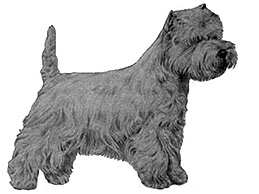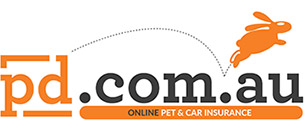Breed standards
West Highland White Terrier
Breed standards are the official guidelines that describe the ideal characteristics, temperament, and appearance of a breed and ensures that the breed is fit for function with soundness essential.

Kennel Club, London 1994
FCI Standard No 85
Strongly built; deep in chest and back ribs; level back and powerful quarters on muscular legs and exhibiting in a marked degree a great combination of strength and activity.
Small, active, game, hardy, possessed of no small amount of self-esteem with a varminty appearance.
Alert, gay, courageous, self-reliant but friendly.
Skull slightly domed; when handled across forehead presents a smooth contour. Tapering very slightly from skull at level of ears to eyes. Distance from occiput to eyes slightly greater than length of foreface. Head thickly coated with hair, and carried at right angle or less, to axis of neck. Head not to be carried in extended position. Foreface gradually tapering from eye to muzzle. Distinct stop formed by heavy, bony ridges immediately above and slightly overhanging eye, and slight indentation between eyes. Foreface not dished nor falling away quickly below eyes, where it is well made up. Jaws strong and level. Nose black and fairly large, forming smooth contour with rest of muzzle. Nose not projecting forward.
Set wide apart, medium in size, not full, as dark as possible. Sharp and intelligent, which, looking from under heavy eyebrows, impart a piercing look. Light coloured eyes highly undesirable.
Small, erect and carried firmly, terminating in sharp point, set neither too wide nor too close. Hair short and smooth (velvety), should not be cut. Free from any fringe at top. Round-pointed, broad, large or thick ears or too heavily coated with hair most undesirable.
As broad between canine teeth as is consistent with varminty expression required. Teeth large for size of dog, with regular scissor bite, i.e. upper teeth closely overlapping the lower teeth and set square to the jaws.
Sufficiently long to allow proper set of head required, muscular and gradually thickening towards base allowing neck to merge into nicely sloping shoulders.
Shoulders sloping backwards. Shoulder blades broad and lying close to chest wall. Shoulder joint placed forward, elbow well in, allowing foreleg to move freely, parallel to axis of body. Forelegs short and muscular, straight and thickly covered with short, hard hair.
Compact. Back level, loins broad and strong. Chest deep and ribs well arched in upper half presenting a flattish side appearance. Back ribs of considerable depth and distance from last rib of quarters as short as compatible with free movement of body.
Strong, muscular and wide across top. Legs short, muscular and sinewy. Thighs very muscular and not too wide apart. Hocks bent and well set in under body so as to be fairly close to each other when standing or moving. Straight or weak hocks most undesirable.
Forefeet larger than hind, round, proportionate in size, strong, thickly padded and covered with short harsh hair. Hindfeet are smaller and thickly padded. Under surface of pads and all nails preferable black.
13-15 cms (5-6 ins) long, covered with harsh hair, no feathering, as straight as possible, carried jauntily, not gay or carried over back. A long tail undesirable, and on no account should tails be docked.
Free, straight and easy all round. In front legs freely extended forward from shoulder. Hind movement free, strong and close. Stifle and hocks well flexed and hocks drawn under body giving drive. Stiff, stilted movement behind and cow hocks highly undesirable.
Double coated. Outer coat consists of harsh hair, about 5 cms (2 ins) long, free from any curl. Undercoat, which resembles fur, short, soft and close. Open coats most undesirable. Skin must appear healthy.
White
Height: approx. 28 cms (11 ins) at withers
Any departure from the foregoing points should be considered a fault and the seriousness with which the fault should be regarded should be in exact proportion to its degree and its effect upon the health and welfare of the dog.
Male animals should have two apparently normal testicles fully descended into the scrotum.



